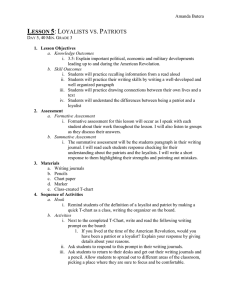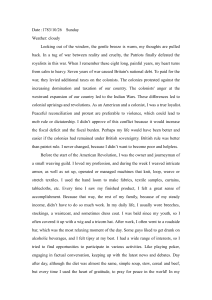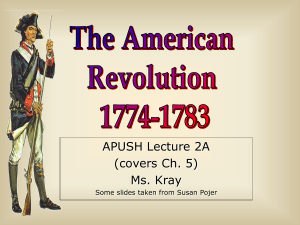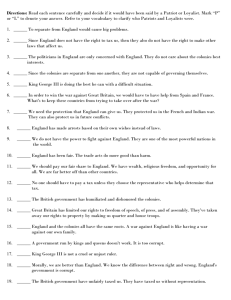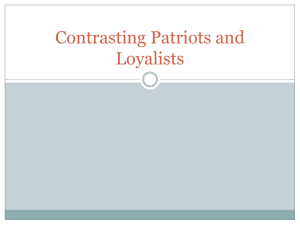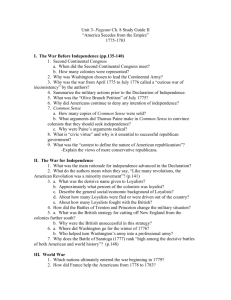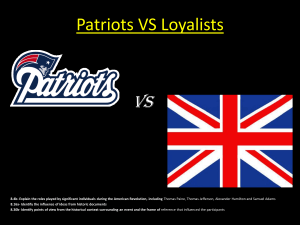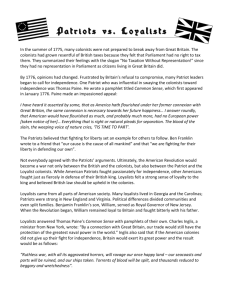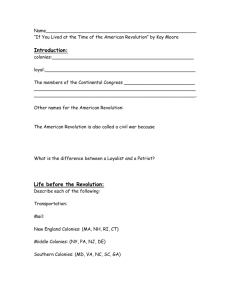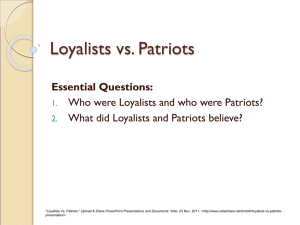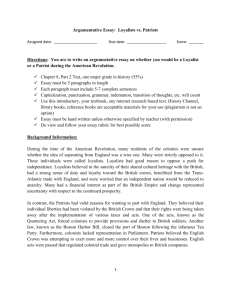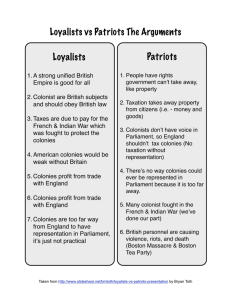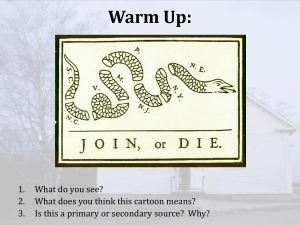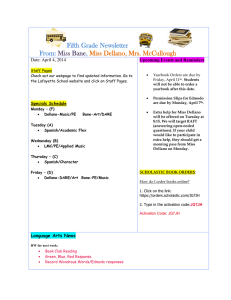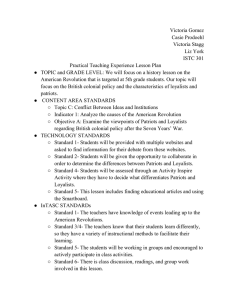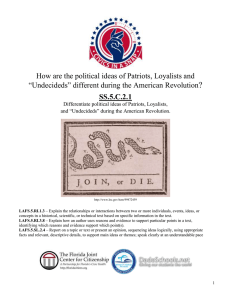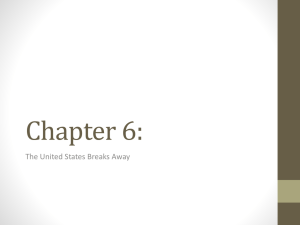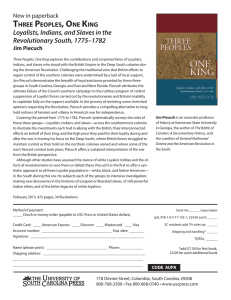Patriots v. loyalists
advertisement
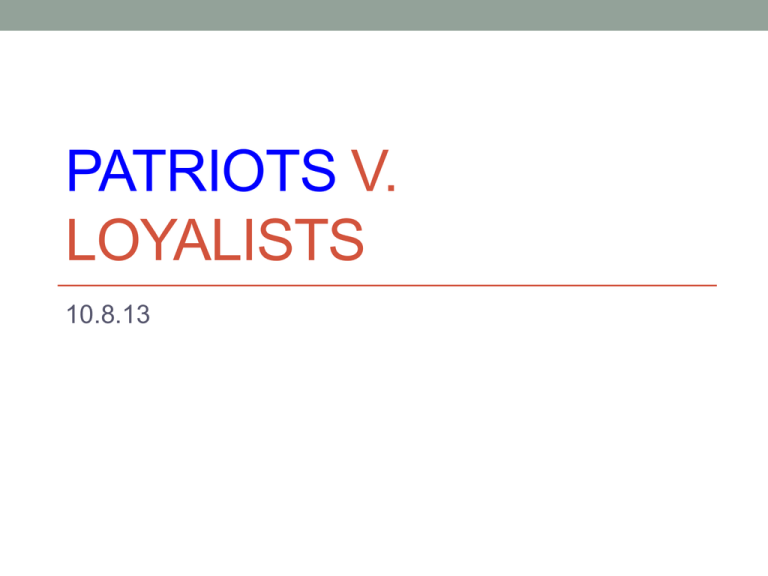
PATRIOTS V. LOYALISTS 10.8.13 Materials -Notebook -Pencil -Homework -Red and blue colored pencil/mark er -Scissors -Glue/tape Homework (1 paragraph) -Choose a side! Write a letter to the class as a loyalist or a patriot, provide three reasons why you chose that side, and try and convince them to join your side. -(Use one form of persuasive appeals in your letter at the top of your letter bullet point which type of appeals you used.) • Do Now: describe what is Topic: Patriots v. Loyalists Question of the Day: What is a loyalist? A patriot? What did they believe? happening in this picture. Vocabulary Write the word and definition 1. Patriot: a person who vigorously supports their country and is prepared to defend it against enemies or detractors. 2. Loyalist: American colonists who remained loyal to Great Britain. Draw a picture for each word Loyalists and Patriots Add these to your pictures • Thought bubble: What were my beliefs? Why? • Word bubble: What was my argument for my beliefs? I believe that… I believe I believe Who were loyalists? • They were older • Many were merchants and wealthy land owners • Active in the Church of England • Pennsylvania Dutch were loyalists • Feared royal land grants would be in danger • Due to idea of a republican form of government • About100,000 loyalists left the country after the revolution Patriots • Many different backgrounds • Leaders were highly educated and wealthy • Majority were ordinary men and women • Farmers, mechanics, homemakers, and shopkeepers • Middle and lower classes didn’t like economic situation • Due to British taxation 1. People have rights government can’t take away, like property 2. Taxation takes away property (i.e. money & goods) 3. Colonists don’t have voice in Parliament, so they can’t tax colonies (No taxation without representation) American colonies would be weak without Britain 4. There’s no way colonies could ever be represented – Parliament’s too far Colonies profit from trade with England 5. Many colonists fought in the French & Indian War (we’ve done our part) 6. British personnel are causing violence, riots, and death (Boston Massacre & Tea Party) 1. 2. 3. 4. 5. A strong unified British Empire is good for all Colonists are British subjects and should obey British law Taxes are due to French & Indian War which was fought to protect colonies 6. Colonies are too far away from England to have representation in Parliament, its just not practical Double Bubble Map Loyalist Patriot Set up your NB Leaders: 1. Find three leaders that were loyalists and three that were patriots. 2. Write one sentence about each leader. (six total) Propaganda: biased information trying to convince people to join your cause 1. Describe the picture 2. Is it pro-British or pro-colonist? 3. What was the message of the piece? Homework • Choose a side! • Write a letter to the class as a loyalist or a patriot, provide three reasons why you chose that side, and try and convince them to join your side. • Use one form of persuasive appeals in your letter at the top of your letter bullet point which type of appeals you used.
